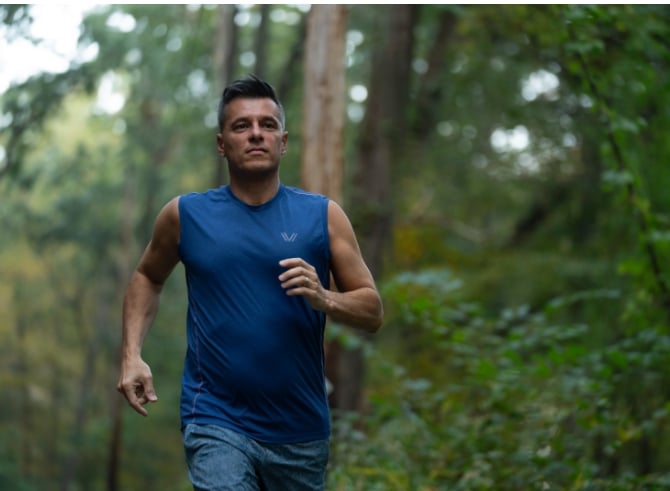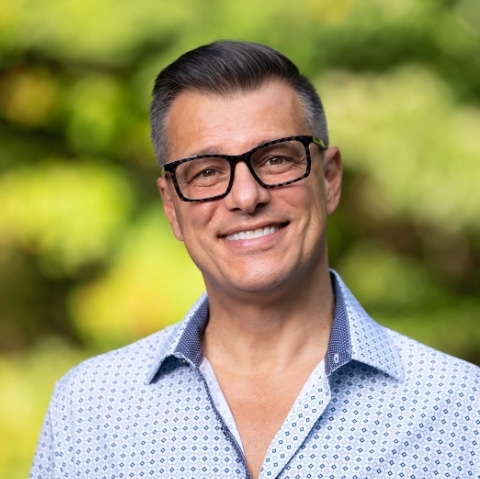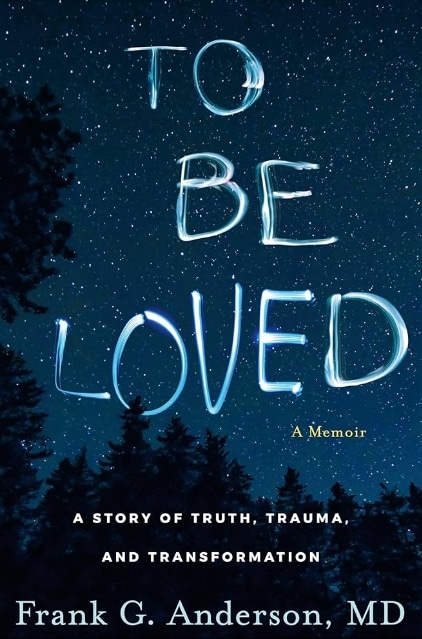Contents
Hello! Who are you?
My name is Frank Anderson and I live both in Boston, MA, as well as Los Angeles, CA. I am married to my husband Michael Anderson for 25 years. I have one tiny little havanese dog, named Mya.
I am self-employed and I run two companies. One called Trauma Institute, bringing integrated trauma treatment to clinicians. The second is Trauma Informed Media, bringing mental health content to the media.
My passions are travel, food, nature and exercise. I do consider myself an extremely happy person and the reason for this is because I feel incredibly fortunate and grateful for all of the opportunities that I have had presented to me throughout my life.

What is your struggle and when did it start?
My struggle is no longer in the present day, it is something in the past. My struggle started very early in life, around 6 years of age, when I walked into my parents’ bedroom and they told me I wasn’t going to school on that particular day.
They brought me in for a psychological evaluation because I got caught playing with a Barbie doll in my cousin’s basement. This was very early in the 1960s and those kinds of behaviors for boys were totally unacceptable. So, for the next 6 years I was put into a form of conversion therapy because I wasn’t acting like normal boys.
This set me on a trajectory of feeling wrong and bad, abnormal and working very hard for most of my life to try to be someone who was acceptable and worthy of love. I am so grateful that in this period of my life, I have overcome that struggle. It has certainly not been an easy one, but it was something that I dealt with for 32 years of my life, forcing me to become someone that the world, culture and society needed and wanted me to be. Also, this forced me to not be my authentic self with my family and to do everything in my power to get my parents to love me.
How did this struggle make you feel at your worst moments?
This struggle of mine had a profound impact on my life. As I have said previously, it made me be entirely someone other than who I was. It caused me to dissociate and disconnect from my authentic self and to live an inauthentic, fake life.
I remember playing baseball because I was supposed to play boy sports. I remember being terrified of being hit by the ball because my father was physically abusive to me at home growing up. So, I ran for the chance of becoming the catcher, primarily because he had protective gear, so I wouldn’t get hurt by the ball. I remember putting on the face mask, chest plate, and chin guards, hoping I would feel safe in a sport that I had no interest in and one that I was also terrified of getting hurt from.
I do not know whether other people knew that I was struggling or not because, in our family dynamic, it was very important to present well. I think I did a really good job of hiding who I was and being who people needed and wanted me to be.
Now in my life today, I can talk to my cousins who grew up with us, and they’ve said they had no idea what I was struggling with. They always thought my family was the perfect family. They always wanted to be just like my family. I think I was a smart learner and did a great job of hiding all the pain and conflict that I experienced in my life, and presented well to the world. I was also a straight A student and a teacher’s pet for most of my life. Again, learning how to be what people wanted me to be, allowed me to achieve and succeed beyond my wildest dreams.
I always got awards at every graduation or assembly, and this desire to please became highly advantageous in the world which allowed me to achieve great things. This culminated when I got accepted to Harvard Medical School to become a psychiatry resident in medicine.
👉 Share your story: Help thousands of people around the world by sharing your own story. We would love to publish your interview and have a positive impact on the world together. Learn more here.
Was there a moment when you started to turn things around?
I remember very clearly the moment when things started turning around for me. As I said, I had done the correct things for a boy and man in the world and I ended up marrying a woman, because that was what was expected of me.
Over several years of being married, 8 in total, our marriage began to break down because of my inability to truly be present and love her authentically.
And I started engaging in anonymous sex with men while my then-wife was on call in her residency training program. This created a huge amount of internal distress for myself, acting in a way that felt totally shameful and guilt-ridden.
Eventually, I ended up telling her that I was gay and that I was attracted to men, which obviously ended our marriage. This was a very difficult and painful time for me, living a double life and acting in ways that felt destructive, harmful and painful, both to her and I. It was a huge relief when I finally was able to acknowledge my sexual orientation both internally to myself, as well as to my then-wife. However, this struggle was just the beginning because I now had to tell my family and friends about my orientation.
Growing up in a mid-western, conservative family was terrifying for me. I thought I would lose everyone and everything in my life, if I was choosing to live my life authentically.
What steps did you take to overcome your struggle?
The steps that I took to overcome my struggle were long and arduous. To date, I have been in therapy for over 33 years. As I stated earlier, starting therapy at 6 years old for 6 years totally against my will, was the beginning of my therapy journey.
The next phase of my life during my residency training program at Harvard, I was so affected and overwhelmed by the intensity of working with people who struggled with mental illness, it activated my repressed, unresolved pain within me. It forced me into a second round of therapy, where I went into psychoanalysis five times a week for over 11 years.
This phase of therapy was helpful, as it helped me uncover my trauma history, as well as discover my sexual orientation as a gay man, however, it did not fully resolve my trauma. I still carried the pain of being physically and verbally abused, living an inauthentic life for several years. It was not until I had children with my husband that the next layer of pain became activated within me.
I saw myself, in moments, acting like my father towards my kids. This was such a painful realization, that it brought me back into therapy for a third round. It was here that I was able to finally and fully release the painful experiences of my childhood that allowed me to no longer carry my trauma within me.
What I would say to anyone who is struggling with any version of being inauthentic, being disconnected, not living their true authentic life, is to continue striving and to let them know that releasing the pain that we carry is possible, no matter how severe and how challenging it may feel in the moment.
I am a living testament that releasing trauma is possible and living an authentic life is attainable.
Have you shared any of this with people around you in real life?
Yes, I have shared my story with many people around the world.
Recently I have written a memoir called, “To Be Loved; A Story of Truth, Trauma and Transformation.”
This was my way of letting the world know that trauma is universal and that there is a process of healing from all kinds of trauma that we can overcome and rise above any adversity that we have experienced in our life, and that we can be at peace within ourselves, as well as with the person or people who have harmed us throughout our life.
This is a message that I think many people are not aware of and one that I feel very strongly about bringing to the world.
If you could give a single piece of advice to someone else that struggles, what would that be?
The message that I want to share with the world is that Trauma blocks love and connection.
Trauma blocks who we authentically are, and in fact, it is love and connection that heals trauma. Everyone is capable, with love, connection and support, of healing their trauma.
What have been the most influential books, podcasts, YouTube channels, or other resources for you?
The most influential book and movie I have seen in my life is Ordinary People. It changed my life. When I was in college, when I first saw that movie, I on an unconscious level identified with the Timothy Hutton character who had gone through trauma in his life.
I also idolized the psychiatrist character, Judd Hursh, because I wanted to be like him to be able to help people who were struggling with emotional pain.
Lewis Howes’ “School of Greatness” podcast is one of my favorite podcasts. I think he does an amazing job bringing valuable information to the world.
Where can we go to learn more about you?
You can learn more about me on my website and my platforms Trauma Informed Media, and the Trauma Institute, through my memoir To Be Loved: A Story of Truth Trauma and Transformation and books Transcending Trauma and Internal Family Systems Skills Training Manual.
You can also connect with me on Instagram (@frank_andersonmd), TikTok (@frankgandersonmd), Facebook (Frank Anderson, MD), LinkedIn (Frank Anderson, MD), YouTube (@frankandersonmd) and X (@frankandersonmd).
Want more interviews?
Continue reading our inspiring case studies and learn how to overcome mental health struggles in a positive way!
Want to help others with your story? We would love to publish your interview and have a positive impact on the world together. Learn more here.


